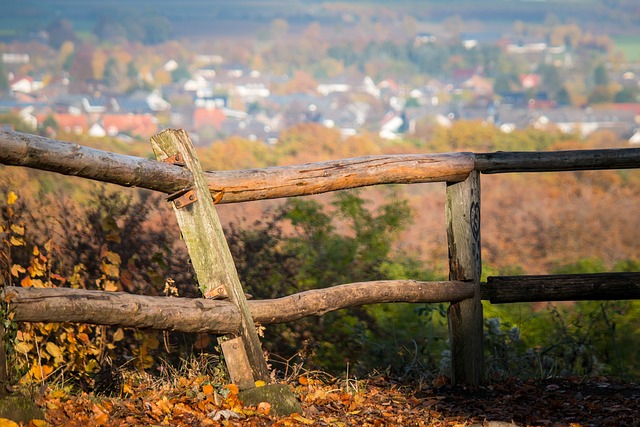In the heart of New Bedford, MA, a shift towards eco-conscious landscaping is gaining momentum. This article explores the transformative power of eco-friendly fencing materials, offering not just aesthetic appeal but also significant environmental and practical benefits. From recycled plastic to natural wood and innovative composite options, these sustainable alternatives enhance privacy, reduce ecological footprints, and promote local biodiversity. Discover how New Bedford residents are embracing green fencing for a healthier, more sustainable future.
- Eco-Friendly Fencing Options in New Bedford
- Benefits of Sustainable Fencing Materials
- Natural Barriers for Improved Privacy
- Reducing Environmental Impact with Recycled Fences
- Longevity and Low Maintenance Features
- Enhancing Local Ecosystems with Green Fences
Eco-Friendly Fencing Options in New Bedford
New Bedford, MA, is embracing sustainable solutions, and eco-friendly fencing materials are at the forefront of this movement. Residents and local businesses are increasingly opting for environmentally conscious options, not just for their aesthetic appeal but also for the numerous benefits they offer. One popular choice is recycled plastic fencing, which is durable and low-maintenance. These fences are made from post-consumer plastic, reducing landfill waste and providing a long-lasting alternative to traditional wood or metal fences.
The city’s commitment to environmental preservation has led to the promotion of these green fencing materials. They not only add beauty to landscapes but also contribute to a healthier local ecosystem. With various styles and colors available, recycled plastic fences can blend seamlessly with natural surroundings, making them an attractive option for those seeking to enhance their outdoor spaces while minimizing their ecological footprint.
Benefits of Sustainable Fencing Materials
In New Bedford, MA, adopting eco-friendly fencing materials offers a multitude of benefits for both residents and the local environment. These sustainable alternatives not only contribute to a greener community but also provide long-lasting solutions that are aesthetically pleasing and require less maintenance compared to traditional fences. By choosing materials like recycled plastic, bamboo, or organic wood treated with non-toxic preservatives, homeowners can reduce their carbon footprint and support local efforts to preserve natural resources.
Moreover, sustainable fencing options enhance the overall value of properties. Eco-conscious buyers increasingly prefer homes with green amenities, making properties with eco-friendly fences more desirable and potentially increasing their market value. Additionally, these materials are designed to withstand harsh weather conditions, ensuring longevity and minimizing the need for frequent replacements, which aligns with New Bedford’s commitment to sustainable living and waste reduction.
Natural Barriers for Improved Privacy
Fencing isn’t just about function; it can also enhance privacy, especially when using natural materials that blend beautifully with their surroundings. In New Bedford, MA, where diverse landscapes offer both urban and rural settings, eco-friendly fencing presents a unique opportunity to create private retreats while minimizing environmental impact. Natural barriers like bamboo, wood chips, or living hedges not only provide seclusion but also attract local wildlife, contributing to a healthier ecosystem.
These organic alternatives stand out for their ability to foster biodiversity. Unlike traditional fences that can act as physical barriers to movement, natural barriers allow certain species to pass through, promoting ecological balance. Furthermore, they offer a visually appealing solution, creating peaceful oases within urban areas and rural landscapes alike.
Reducing Environmental Impact with Recycled Fences
In the pursuit of sustainability, New Bedford residents and local businesses are increasingly turning to eco-friendly fencing materials. One of the significant advantages of recycled fences is their minimal environmental impact. Traditional fencing often relies on non-renewable resources like wood or metal, contributing to deforestation and greenhouse gas emissions. In contrast, recycled fences utilize materials such as plastic bags, tires, and even concrete from construction sites. By repurposing these waste products, we can reduce the demand for new raw materials, minimize landfilling, and lower carbon footprints.
Moreover, recycled fencing offers a unique opportunity to engage in local recycling efforts. New Bedford’s commitment to eco-friendly practices can be strengthened by supporting local recycling initiatives that produce these materials. This not only fosters a circular economy but also encourages community involvement in sustainable solutions. Each recycled fence installed is a step towards a greener, more resilient New Bedford, where environmental stewardship and aesthetic beauty go hand in hand.
Longevity and Low Maintenance Features
Eco-friendly fencing materials offer an excellent combination of longevity and low maintenance, making them a smart choice for homeowners in New Bedford, MA. These materials are designed to withstand harsh weather conditions, from intense summer sun to frigid winter temperatures, ensuring they remain sturdy and structurally sound for years. Unlike traditional fences that may require frequent painting or sealing, eco-friendly options often have built-in protection against rot, mold, and pests, reducing the need for regular maintenance.
Many modern eco-friendly fencing materials are made from recycled plastic, wood fibers, or other sustainable sources, ensuring they have a minimal environmental impact. This durability and low-maintenance nature not only saves homeowners time and money but also contributes to a more sustainable landscape, reducing waste and preserving natural resources.
Enhancing Local Ecosystems with Green Fences
Green fences, made from eco-friendly materials like recycled plastic, bamboo, or natural fibers, offer more than just an aesthetically pleasing alternative to traditional fencing. In New Bedford, MA, these innovative designs play a vital role in enhancing local ecosystems by providing habitats and food sources for wildlife. By integrating green spaces into the urban landscape, these fences promote biodiversity, support local bird populations, and even help combat climate change by absorbing carbon dioxide and releasing oxygen.
Moreover, eco-friendly fencing materials are designed to be durable and low-maintenance, reducing the environmental impact associated with frequent replacement and disposal. They also minimize water pollution by preventing soil erosion and allowing rain water to soak into the ground, replenishing local water tables. In New Bedford’s diverse and vibrant ecosystem, these green fences contribute to a more balanced and harmonious environment for both residents and wildlife alike.
